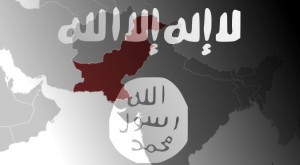ISIS has extended its tentacles to the subcontinent and its robust claim in black-and-white leaves no scope for speculation – “Thanks to God, 43 apostates were killed and close to 30 others were wounded in an attack by the soldiers of Islamic State on a bus carrying people of the Shia Ismaili sect in Karachi.”
Indeed, Wednesday’s bedlam and butchery marks a heart-wrenching extension of the war within a religion. South Asia was thus far unscathed by the surge of the ISIS fundamentalism. Not so after Wednesday, however.
The footsoldiers of the Caliphate have surgically targeted a segment that doesn’t subscribe to the murderous brand of ISIS theocracy. Whether its victims were “infidels” or “apostates” has been reduced to an issue of subjective reflection, both by the Taliban and ISIS.
The pattern and suddenness of the strike would suggest that the assailants – if not the local security – were aware of the bus route, and the Shia Ismaili persuasion of its passengers who were largely bound for work.
The bus belongs to the Al-Azhar Trust, a Muslim charitable organisation, and was en route to a place of worship for Ismaili Muslims when the militants struck. The Ismailis belong to a branch of Shia Islam, often referred to as Seveners, who live in Pakistan, India and Afghanistan, although small groups are also to be found in east Africa and the Middle East.
It may not be easy for ISIS to entrench itself in Pakistan in the manner of the Caliphate’s sway over a vast swathe of Iraq and Syria; geopolitics is as different as the intensity of the intra-religion turmoil though the Shia-Sunni discord has been a challenge to Pakistan’s political establishment.
Nonetheless, the country’s minorities, most particularly in Sind province, have become ever more vulnerable. Indeed, Sunni extremist groups, including the Taliban, view Shias as apostates and have in the past targeted the minority group.
Apart from Al Qaida and Taliban on the Af-Pak frontier, a third group now poses a forbidding challenge to the authorities, civil as well as military. The condemnation of the outrage by Prime Minister Nawaz Sharif and President Mamnoon Hussain makes it plain that the first major strike by ISIS has unnerved the Pakistan establishment.
While it has been possible for the government to engage in negotiations with the Taliban – however infructuous – ISIS is a different kettle of fish. If the Taliban experience is any indication, military action against the first stirrings of the Caliphate is too awesome even to imagine. The cocktail of intra-Islam discord and terrorist intent has had a hideous impact in a country that is grappling with the extremist challenge.



